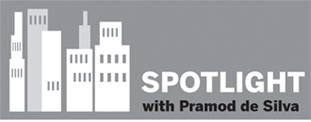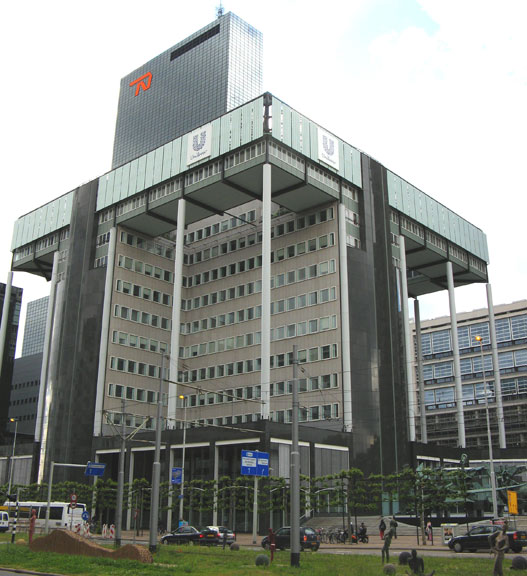Unilever: Sustainability the key to success
 Unilever, formerly known locally as Lever Brothers, is one of the
world's biggest Fast Moving Consumer Goods (FMCG) multinational
companies, active in almost every country in the world, including Sri
Lanka. Unilever, formerly known locally as Lever Brothers, is one of the
world's biggest Fast Moving Consumer Goods (FMCG) multinational
companies, active in almost every country in the world, including Sri
Lanka.
The merged company (Dutch margarine maker Unie and British soap maker
Lever Brothers - hence the name Unilever) was set up in 1929, though
they had been operating for decades before that separately.
To this day, the Anglo-Dutch multinational consumer goods company is
co-headquartered in Rotterdam, Netherlands, and London, United Kingdom.
Foods, Refreshment (beverages and ice cream), Home Care, and Personal
Care are its main product lines. Only Proctor and Gamble and Nestle have
a bigger presence in the FMCG arena.
In Sri Lanka, Unilever is the most awarded FMCG company in the
SLIM-Nielsen People's Awards. Unilever has also topped Gartner's annual
Supply Chain Top 25 which identifies supply chain leaders and highlights
their best practices. McDonald's, Amazon, Intel and a newcomer to the
top five, H&M rounded up the rest.
Biggest tea producer
Unilever owns over 400 brands, but focuses heavily on 14 brands with
sales of over 1 billion euros - Namely Axe/Lynx, Dove, Omo, Becel/Flora,
Heartbrand/Walls ice cream, Hellmann's, Knorr, Lipton, Lux, Magnum, Rama,
Rexona, Sunsilk and Surf.
On any given day, two billion people use Unilever brands and products
around the world. Unilever is the biggest tea producer in the world,
through its Lipton and other tea brands. It is also the world's biggest
producer of margarine, through Flora and Astra brands. A few years ago,
Unilever acquired the Marmite brand yeast spread.
Unilever has a high dependence on emerging markets. In Q1, 2016, 60
percent of revenue came from Emerging markets. Unilever reported a sales
figure of €12.5 billion during first quarter of this year, which
represents a 12 percent reduction from the €14.2 billion figure reported
in Q1 2015 (Source: Unilever).
|

Unilever headoffice in Rotterdam, Netherlands.
WWW.UNILEVER.COM |
Unilever has championed what it calls 'sustainable living' brands.
Defined by the firm as brands which have "integrated sustainability into
both their purpose and products" and including high profile names such
as Knorr, Dove, Lipton, Hellman's and Dirt is Good, Unilever's
'sustainable living' brands grew 30 percent faster than the rest of the
business, the company said in its annual sustainability report. The
report confirmed Unilever's 'sustainable living' brands grew faster than
last year and also included a new survey by the company, which found 54
percent of consumers 'want to buy more sustainably'.
Waste
The report said that by May 2015 Unilever's manufacturing network had
achieved an annual saving of one million tonnes of CO2 compared to a
2008 baseline. It added that in total, CO2 savings from energy per tonne
of production have fallen by 39 percent since 2008, and the firm claims
to have avoided $370 million in costs by using less energy.
On waste, the company reiterated it has achieved zero waste status at
more than 600 factories/facilities across 70 countries, helping to avoid
costs of around US$ 280 million since 2008. Since that date overall,
total waste sent for disposal has also fallen by 97 percent per ton of
production, the report said.
"Business can play a leadership role in disrupting markets in support
of sustainable living - and they will be rewarded by consumers who are
also seeking responsibility and meaning as well as high quality products
at the right price," says Unilever CEO, Paul Polman.
Unilever is also using new technology in its packaging to reduce the
environmental impact. For example, the company is exploring MuCell
technology, which essentially eliminates the middle layer of a material
and injects it with air bubbles. This enables the packaging to retain
its durability while using less plastic.
First introduced to the market through Unilever's Dove Body Wash
bottles over two years ago, it allows products to retain their shape
while using a lot less material, cutting down on shipping costs and
reducing greenhouse gas emissions. With over 33 million Dove Body Wash
bottles sold per year, this new technology saves over 275 tons of
plastic annually with that one product alone. (TriplePundit.Com)
Unilever CEO Polman is recognized as a strong advocate for empowering
women. "In this world, not everyone has the same opportunities - the
right to education, the right to a job, the right to food," he told the
Huffington Post in a recent interview.
"And one of the biggest possibilities that we have globally is to
give equal rights to men and women. If we would just invest not more,
but the same in women and girls as we invest in men, the global economy
could be bigger by about 28 trillion in the next 15-20 years alone," he
said.
Next Week: Toyota
|

